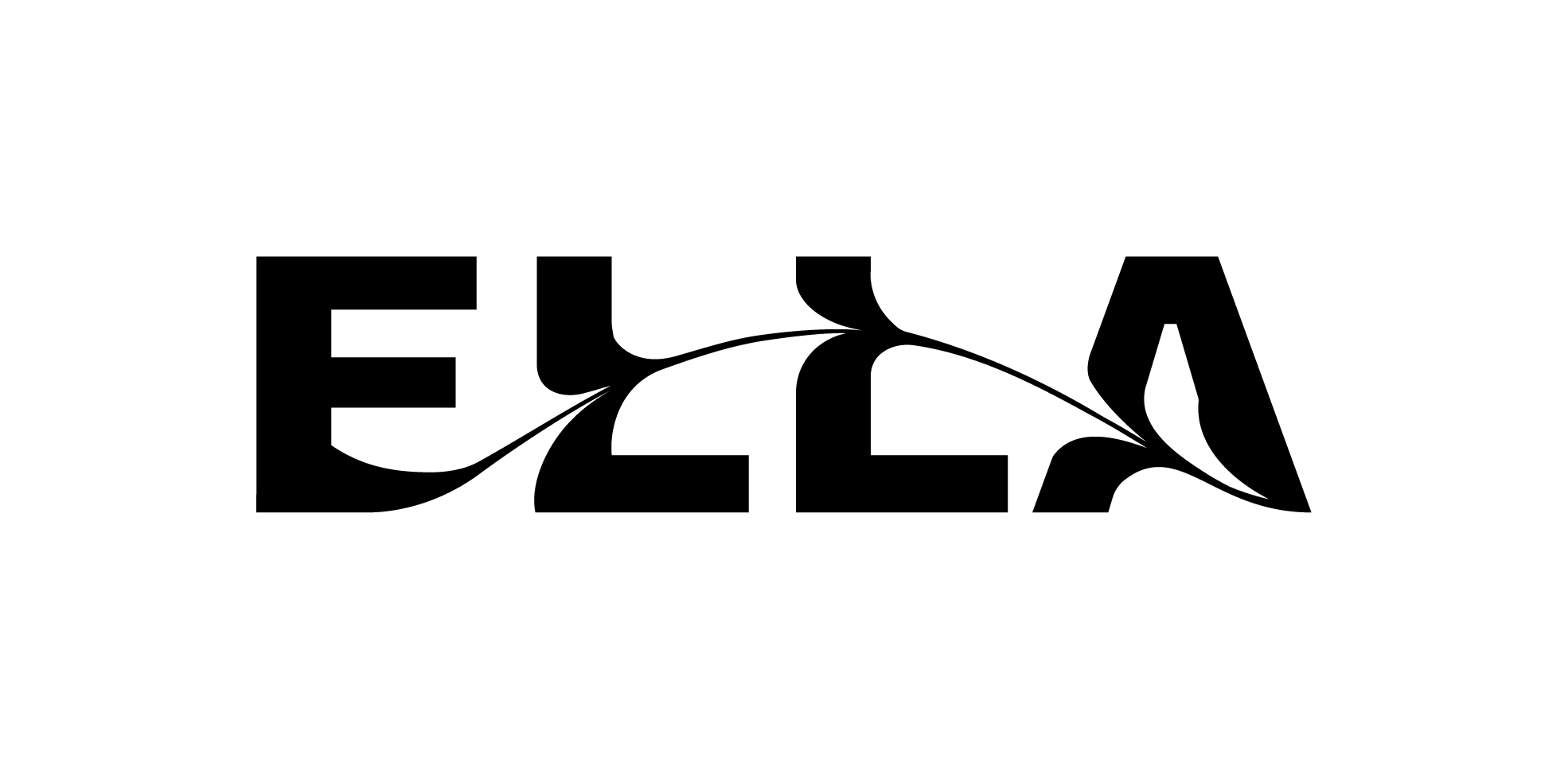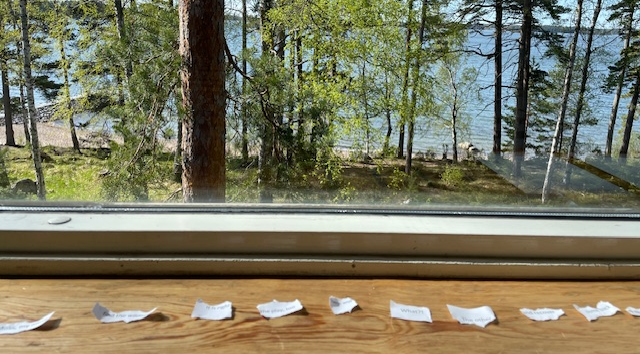Welcome to the ELLA project’s hybrid, mid-way seminar
The ELLA project arranges a public seminar at Åbo Akademi University in Vaasa on December 9, 2022. The seminar is open to all interested in embodied language learning through the arts – teachers, artists, student teachers, teacher educators, researchers, and others who might be interested – and includes presentations and discussions of ongoing and published research and practical workshops. The seminar is held in English.
Participants can attend free of charge onsite in Vaasa or virtually via Zoom. Participation requires registration.
Location: Åbo Akademi University, Campus Academill, Rantakatu 2, 65100 Vaasa, Finland; and Zoom.
Time: Friday December 9, 2022 between 9:00-16:00 Finnish Time
Registration deadline: Friday December 2, 2022 at 23:59 Finnish Time
Register to the seminar here.
If you have any questions about the seminar, please contact Sofia Jusslin at Åbo Akademi University, sofia.jusslin[at]abo.fi
The program
Part 1 in Akademisalen C302 – onsite or Zoom
09:00 Opening of the seminar
Opening words by seminar host University Lecturer Sofia Jusslin (Åbo Akademi University) and greeting by Dean Michaela Pörn (Faculty of Education and Welfare Studies, Åbo Akademi University)
09:10 The Embodied Language Learning through the Arts research project
ELLA’s principal investigator Professor Eeva Anttila (University of the Arts, Helsinki)
This presentation gives an overview of ELLA’s aims and research questions and the theoretical, philosophical, and methodological framework of the project. It presents the ELLA team as a multi-professional, interdisciplinary research community that works towards a common goal with multiple approaches.
09:25 Spoken word choreographies combining dance and Swedish language learning in upper secondary school
University Lecturer Sofia Jusslin (Åbo Akademi University) and Doctoral Researcher Kaisa Korpinen (University of Turku)
This presentation focuses on combining Swedish language learning and dance within the dance course “Dance with language”, held by dance teacher Lotta Kaarla at a Finnish-speaking upper secondary school. The main activity within the course was working with spoken word choreographies. Questions addressed are: How dancing and languaging become entangled when doing spoken word choreographies? How can combining dancing and languaging create space for creative and embodied ways of learning language? The researchers discuss how spoken word choreographies can be a valuable way to teach language, moving beyond restrictions in language to emphasize creative explorations and inductive approaches.
09:50 Future physical education teachers as supporters of language learning
Senior Lecturer Mariana Siljamäki (University of Jyväskylä) & Professor Eeva Anttila (University of the Arts, Helsinki)
This presentation focuses on learning processes related to intercultural competence of PE teacher trainees. The data was gathered in connection to courses on equality in physical education and sport in 2020–2021 at the University of Jyväskylä. One element of the courses was embodied learning, and how to teach language through movement. Through this approach most of the students became aware of the importance of supporting multilingual young people in physical education classes. These reflections can be seen as a sign of expanding professionalism.
10:15 Artist @ School
Dance Artist and Teacher Riina Hannuksela (University of the Arts, Helsinki)
This practice-based talk will present an artist’s perspective on artistic or art-based activities in the school environment, particularly in the context of language learning. Drawing on several years of experience in art projects of varying lengths, this presentation asks what are the possibilities for artistic processes and multi-professional collaboration in a school community. The path of an artistic process is difficult to determine in advance and can also have undesirable consequences. In what way can the openness of an art-making be embedded in the school’s often well-defined objectives and available material and immaterial resources? What kind of skills does this collaboration between artist and teacher require from both parties? How should activities be designed to ensure that art retains more than instrumental values in the learning of a particular learning content?
10:40 Break
10:55 Panel discussion: Multi-professional perspectives on working with embodied language learning through the arts
Moderator: Associate Professor Charlotte Svendler Nielsen (Associate Professor, University of Copenhagen)
Panel discussants: Angela Aldebs (Dance Artist, University of the Arts Helsinki), Lina Winberg (Dance Teacher, Regional Dance Center of Ostrobothnia), Eva Kavalika (Music Subject and Classroom Teacher), Katrina Åkerholm (Secondary School Teacher in Swedish (L1) and Literature Education and Doctoral Researcher, Åbo Akademi University), and Marina Bendtsen (University Lecturer in Foreign Language Education, Åbo Akademi University).
In the panel discussion, teachers, artists, and teacher educators meet to discuss embodied language learning through the arts from a multi-professional perspective. The panel discussants work with language education and/or the arts in various ways in and outside educational contexts. During the discussion, they will share their experiences and knowledge to discuss opportunities and challenges with embodied language learning through the arts.
11:50 Practical tools for embodied language learning through the arts
Doctoral Researcher Kaisa Korpinen (University of Turku)
This talk presents a new video-based teaching material on the website of the ELLA research project. The material offers practical tools for teachers, artists, teacher students, and teacher educators interested in embodied and arts-based approaches to language education. The material is an outcome of the project Dansa språk! [“Dance languages!”] (2019–2022), in which a multi-professional team combined dance and movement with Swedish language learning in grades 1–2 in a Finnish-speaking primary school.
12:00 Closing of part 1
University Lecturer Sofia Jusslin (Åbo Akademi University)
Lunch (at own expense)
Part 2 – parallel workshops onsite
13:30 Workshop 1: Embodied language learning through dance in primary school
Doctoral Researcher Kaisa Korpinen (University of Turku)
In this workshop, the participants will explore different activities that combine dance, creative movement, and language learning. The workshop offers concrete tools for early language education. The workshop is based on the project Dansa språk! [“Dance languages!”], in which Korpinen collaborated with dance and primary school teachers to integrate dance in the teaching of the second national language in grades 1–2 of primary school.
13:30 Workshop 2: Embodied language learning through a language-aware choir practice
Doctoral Researcher Johanna Lehtinen-Schnabel (University of the Arts, Helsinki)
This workshop includes diverse musical activities that draw on Learn-Finnish-by-singing (LFBS) choir practice in which music and language learning are interwoven. With playfulness and a mistake-tolerant atmosphere, the participants of the workshop are encouraged to holistic expression both in music and language production in approachable ways that recognize the engagement of the whole human body. The workshop includes some examples of warm-ups, collaborative improvisations, and singing “funny language” songs in diverse music genres. Choir conductor/music educator Lehtinen-Schnabel has been developing the demonstrated practice in collaboration with Finnish as a second language (L2) teachers and adult choir participants with culturally and linguistically diverse backgrounds since 2011. The LFBS-choirs are also the focus in her ongoing doctoral study.
14:30 Break
14:45 Workshop 1: Early embodied language learning through dance
Doctoral Researcher Kaisa Korpinen (University of Turku)
In this workshop, the participants will explore different activities that combine dance, creative movement, and language learning. The workshop offers concrete tools for early language education. The workshop is based on the project Dansa språk! [“Dance languages!”], in which Korpinen collaborated with dance and primary school teachers to integrate dance in the teaching of the second national language in grades 1–2 of primary school.
14:45 Workshop 2: Embodied language learning through a language-aware choir practice
Doctoral Researcher Johanna Lehtinen-Schnabel (University of the Arts, Helsinki)
This workshop includes diverse musical activities that draw on Learn-Finnish-by-singing (LFBS) choir practice in which music and language learning are interwoven. With playfulness and a mistake-tolerant atmosphere, the participants of the workshop are encouraged to holistic expression both in music and language production in approachable ways that recognize the engagement of the whole human body. The workshop includes some examples of warm-ups, collaborative improvisations, and singing “funny language” songs in diverse music genres. Choir conductor/music educator Lehtinen-Schnabel has been developing the demonstrated practice in collaboration with Finnish as a second language (L2) teachers and adult choir participants with culturally and linguistically diverse backgrounds since 2011. The LFBS-choirs are also the focus in her ongoing doctoral study.
15:45 Closing of part 2
We reserve the rights to change the program.

